How to design the finance of the future
Being a core area of economics, finance related topics are reflected in numerous activities of the Center. Questions on the most diverse aspects of finance are key: What can we learn from past financial crises? What does a fair tax system look like? What does the financial system of the future look like? How can we keep Swiss finance in play? How do we deal with sovereign debt? Answers to these and other important questions are provided by numerous experts in lectures, interviews, and papers made possible by the UBS Center.
Being a core area of economics, finance related topics are reflected in numerous activities of the Center. Questions on the most diverse aspects of finance are key: What can we learn from past financial crises? What does a fair tax system look like? What does the financial system of the future look like? How can we keep Swiss finance in play? How do we deal with sovereign debt? Answers to these and other important questions are provided by numerous experts in lectures, interviews, and papers made possible by the UBS Center.
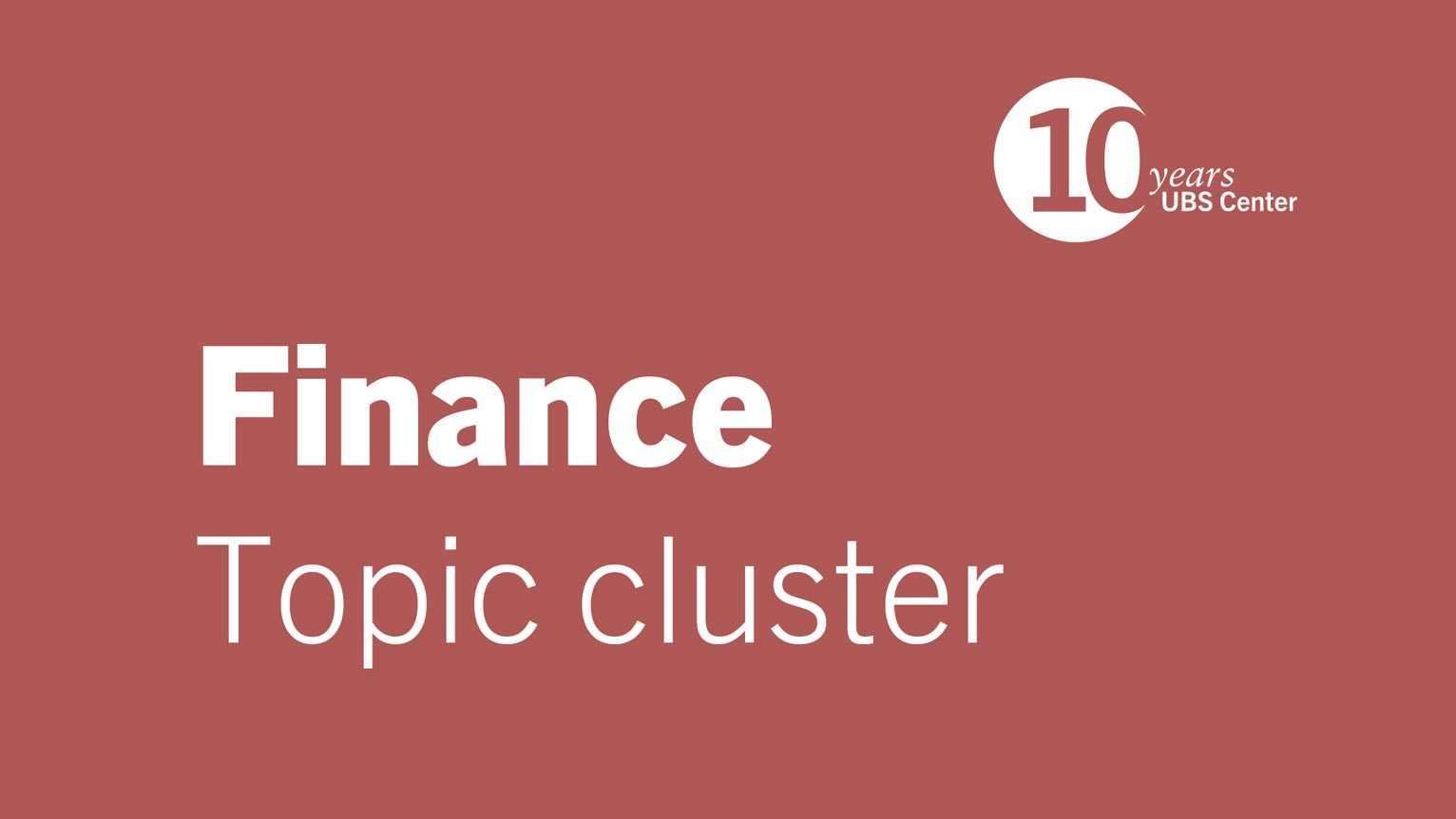
Quotes
Publications
The UBS Center offers two publication series. The Public Paper series makes research on topics of key social relevance available to a broader audience in a simplified, compact, and highly readable format. The Policy Brief series can give governments and businesses the rigorous and clear insights necessary for informed debates and decisions. They are a condensed and non-technical version of some of our top research papers.
Fear, Folly, and Financial Crisis – Some Policy Lessons from History
Financial crises devastate human lives, causing major shocks to economic output, trade, employment, income, and wealth. And as the financial crisis of 2007/08 showed, these crises do not just happen in distant countries or in the distant past – they are part of the economic realities of developed countries today. Public Paper No 2 by Joachim Voth looks at the rich history of financial crises, analyzing both contemporary and historical data on financial instability, and combining this with insights from economic theory. It also proposes a set of policies, which have the potential to reduce the number of financial crises and to soften their consequences.
Income and wealth distribution in Switzerland
Although Switzerland regularly takes on the best positions in the world with respect to average income and wealth, the question of distribution consistently defines public discourse in the country. Political processes, which constantly fight perceived, continually increasing inequality, are not lacking. Public Paper No 6 by Reto Föllmi and Isabel Martínez shows that Switzerland is a center of stability – in a good as well as in a less good sense. This paper is written in German.
Taxing the superrich – Challenges of a fair tax system
Over the past decades, many developed countries have experienced considerable increases in income and wealth inequality, led by an extraordinary concentration among the very richest swath of households. This has focused policy attention on the superrich. Public Paper No. 9 by Florian Scheuer provides an overview of the tax situation the superrich currently face and evaluates various reform proposals.
Raising money for the state – Lessons on reducing tax evasion from Chile and Ecuador
No state can exist in the long term without effective taxation. To be able to execute its various roles, the state needs to acquire the capacity to enforce compliance with tax obligations. Taxation is particularly challenging in developing countries, since it is difficult for the governments to gain information about what taxable transactions occur in more informal economies. This does not only lead to large losses in government revenue, it can also create negative distortions in the economy. The pressing need to tackle tax evasion has led to growing interest in ‘third-party reporting’ – the verification of taxpayer reports against other sources. Policy Brief No. 3/19 by Dina Pomeranz explores the potential of such an approach to improve tax collection – as well as its limitations.
The UBS Center offers two publication series. The Public Paper series makes research on topics of key social relevance available to a broader audience in a simplified, compact, and highly readable format. The Policy Brief series can give governments and businesses the rigorous and clear insights necessary for informed debates and decisions. They are a condensed and non-technical version of some of our top research papers.
Fear, Folly, and Financial Crisis – Some Policy Lessons from History
Financial crises devastate human lives, causing major shocks to economic output, trade, employment, income, and wealth. And as the financial crisis of 2007/08 showed, these crises do not just happen in distant countries or in the distant past – they are part of the economic realities of developed countries today. Public Paper No 2 by Joachim Voth looks at the rich history of financial crises, analyzing both contemporary and historical data on financial instability, and combining this with insights from economic theory. It also proposes a set of policies, which have the potential to reduce the number of financial crises and to soften their consequences.
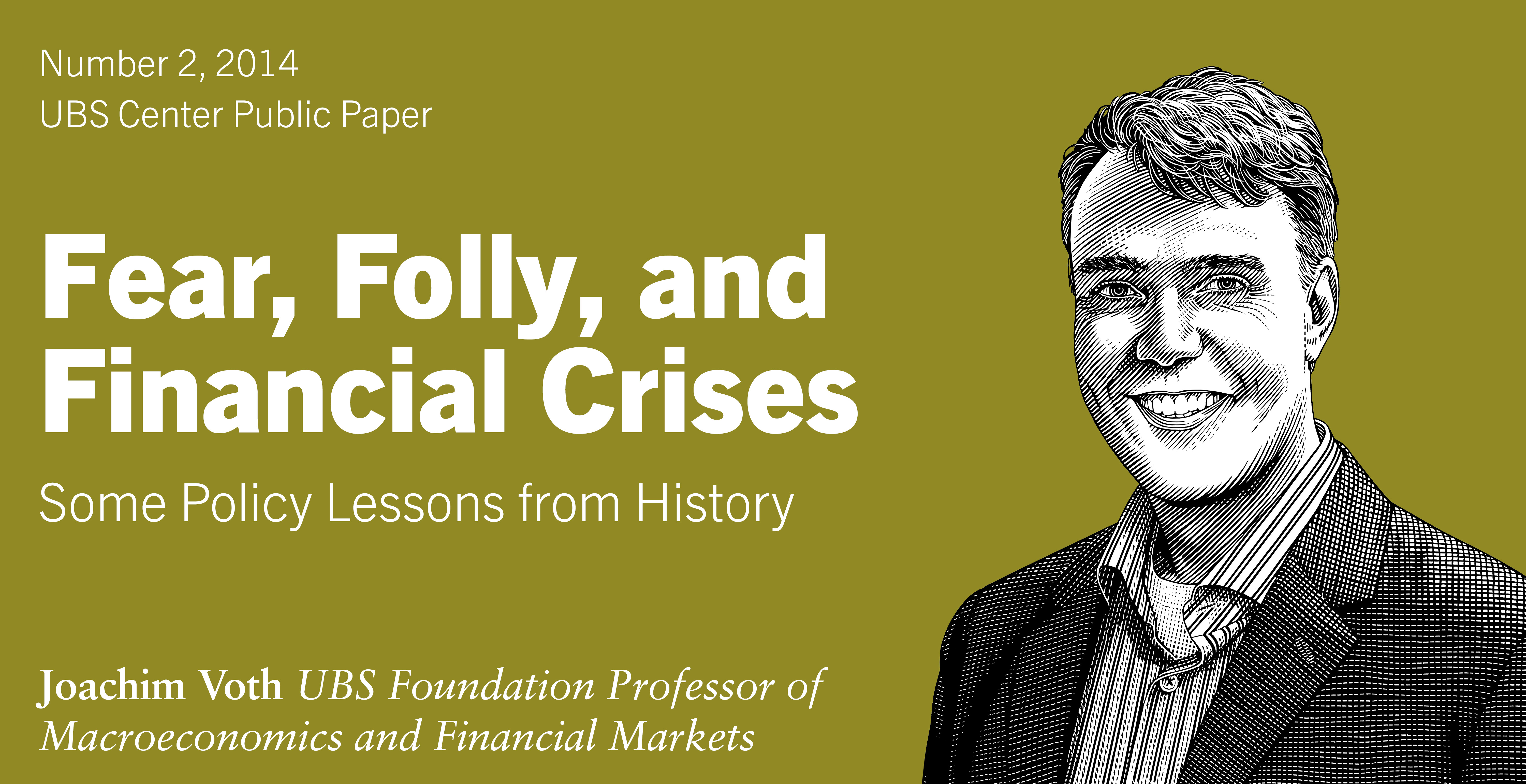
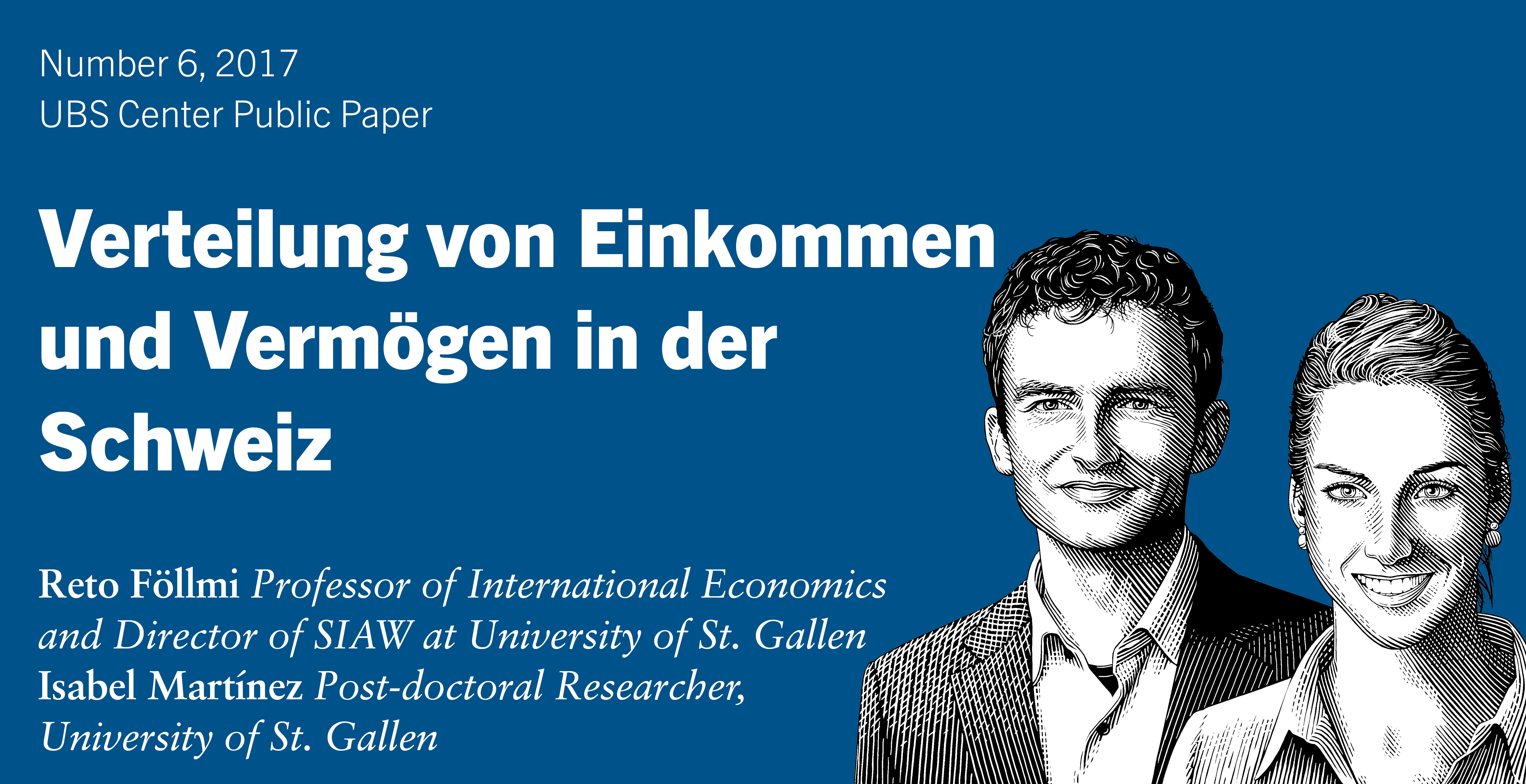
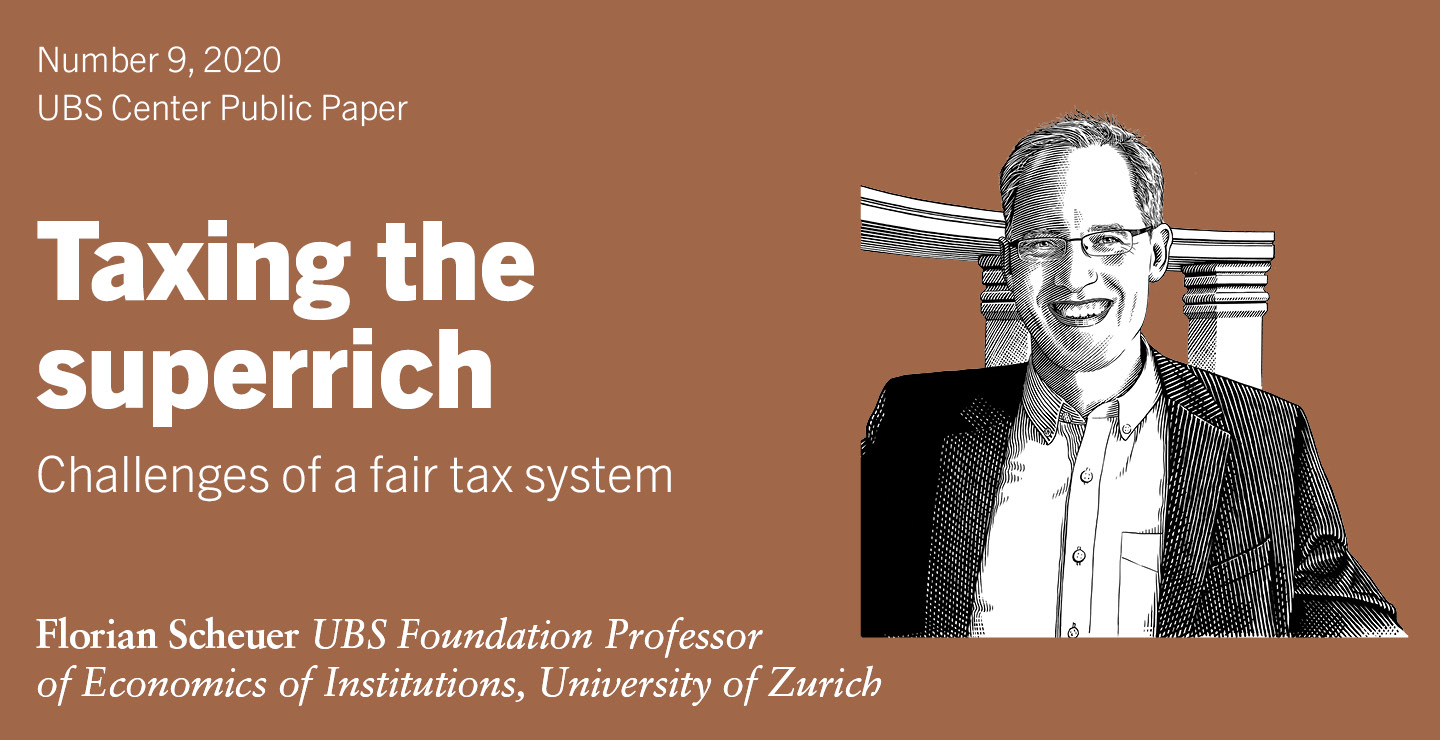
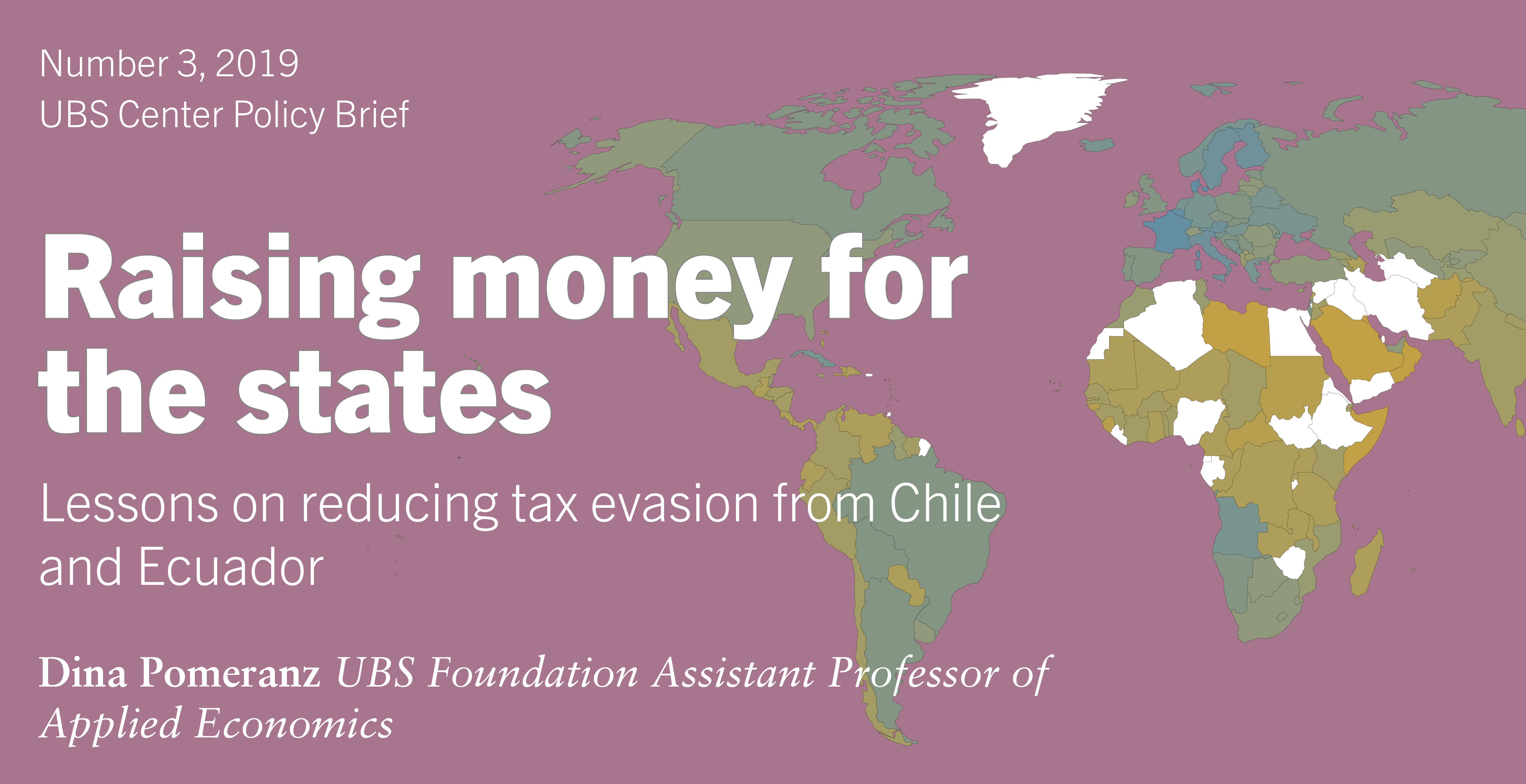
Event highlights
The Center’s events come in different formats, including two annual conferences with leading representatives from the academic, private, and public sectors debating a key contemporary economic issue. The Opinion events feature top representatives from academia to voice their views in public speeches. The Center hosted several events on the topic of labor market and the future of work in the past 10 years.
The Future of the International Financial System – UBS Center Forum 2012
The inaugural Forum for Economic Dialogue edition addressed the future of the international financial system and focused on the interconnections between currency, banking, and debt crises. The opening lecture was held by Jean-Claude Trichet, Chairman of the G30 and former President of the European Central Bank. The day's program was rich in controversial discussions of experts from science, business, and politics such as Daron Acemoğlu, Philippe Bacchetta, Markus Brunnermeier, Jean-Pierre Danthine, Alexander S. Friedman, Jordi Galí, Hélène Rey, Jean-Charles Rochet, Rolf Soiron, Lars Svensson, Fabrizio Zilibotti, and Kaspar Villiger.
Learn more
Switzerland as a business location – Is the model for success in danger? – UBS Center Podium 2014
Switzerland is doing well...too well? Is the model for success in danger? Participants in the UBS Center Swiss Podium 2014 discussed the strengths and weaknesses of Switzerland as a business location. Speakers included representatives from business, science, and politics, such as Aymo Brunetti, Christian Casal, Lars P. Feld, Reto Föllmi, Thomas Knecht, Roger Nordmann, Michael Pieper, and Yves Rossier.
Learn more
How to keep Swiss finance in the game – UBS Center Podium 2018
New technologies, new services, new client needs – is the financial market at a historic turning point? And if so, what are the implications for Swiss finance? At the UBS Center Podium, economic historians and experts from the financial sector were divided on the question about the significance of today’s changes in finance. Speakers included Marc P. Bernegger, Daniel Diemers, Sergio P. Ermotti, William N. Goetzmann, Christina Kehl, Tobias Straumann, and Hans-Joachim Voth.
Learn more
Taxes – between fairness and efficiency – UBS Center Podium 2019
Do we need drastic tax reforms to tackle economic inequality? Are incentive taxes the solution to climate change? Does an ideal tax system exist? One thing is certain: the topic of taxes will play an increasingly important role in the coming years. What does that mean for Switzerland? How a state designs and develops its tax system to adapt it to social changes was the focus of the 2019 UBS Center Podium. Former Swiss Finance Minister Kaspar Villiger opened the event followed by specialists from business, science, and politics, such as Fabian Baumer, Giorgio Behr, Nicola Fuchs-Schündeln, Clemens Fuest, Peter Hegglin, Eva Herzog, and Kurt Schmidheiny.
Learn more
Corona: Stress test for social systems or opportunity for reform? – UBS Center Podium 2021
The pandemic is a stress test for the Swiss social systems. How is the healthcare system performing? What does the crisis mean for retirement provision – is it even an opportunity for reform? In the two-part online edition of the Wirtschaftspodium Schweiz, experts from business and science, such as Monika Bütler, Jérôme Cosandey, Stefan Felder, Ursina Pally Hofmann, Thomas D. Szucs, and Veronica Weisser discussed novel solutions to familiar problems. To enrich the debate, pointed statements from the politicians Ruth Humbel, Melanie Mettler, and Damian Müller were included in the panels.
Learn more
The Future of Europe – UBS Center Opinion 2014
It was a great privilege for the UBS Center to present Nobel Laureate Joseph E. Stiglitz at the public lecture on January 27, 2014, where he talked about the future of Europe. Stiglitz pointed out that Europe’s crisis is deep, and it will take years to fully recover. He argued that it is important to determine the weakness of the system responsible for the current crisis. He believes that the basic problem lies in the fundamental European economic model.
Learn more
Dealing with debt – UBS Center Opinion 2015
In his lecture Prof. Kenneth Rogoff, Thomas D. Cabot Professor of Public Policy and Professor of Economics at Harvard University, explored options on how to reduce public debt in the long run. He compared debt-reduction approaches chosen in the past with potential options for the future.
Learn more
Can Europe be saved? – UBS Center Opinion 2016
Seventy years after Winston Churchill gave his historic address calling for a “United States of Europe” at the University of Zurich, Nobel Laureate Paul Krugman stood at the same podium and delivered a provocative lecture on Europe’s future.
Learn more
The Center’s events come in different formats, including two annual conferences with leading representatives from the academic, private, and public sectors debating a key contemporary economic issue. The Opinion events feature top representatives from academia to voice their views in public speeches. The Center hosted several events on the topic of labor market and the future of work in the past 10 years.
The Future of the International Financial System – UBS Center Forum 2012
The inaugural Forum for Economic Dialogue edition addressed the future of the international financial system and focused on the interconnections between currency, banking, and debt crises. The opening lecture was held by Jean-Claude Trichet, Chairman of the G30 and former President of the European Central Bank. The day's program was rich in controversial discussions of experts from science, business, and politics such as Daron Acemoğlu, Philippe Bacchetta, Markus Brunnermeier, Jean-Pierre Danthine, Alexander S. Friedman, Jordi Galí, Hélène Rey, Jean-Charles Rochet, Rolf Soiron, Lars Svensson, Fabrizio Zilibotti, and Kaspar Villiger.
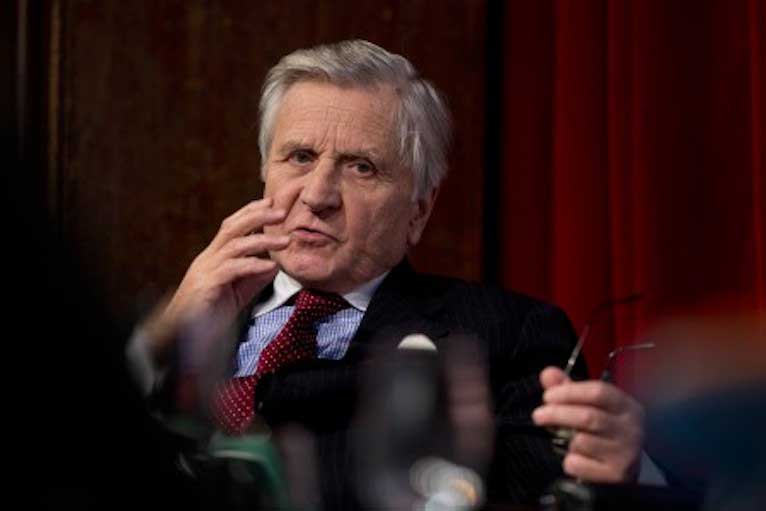


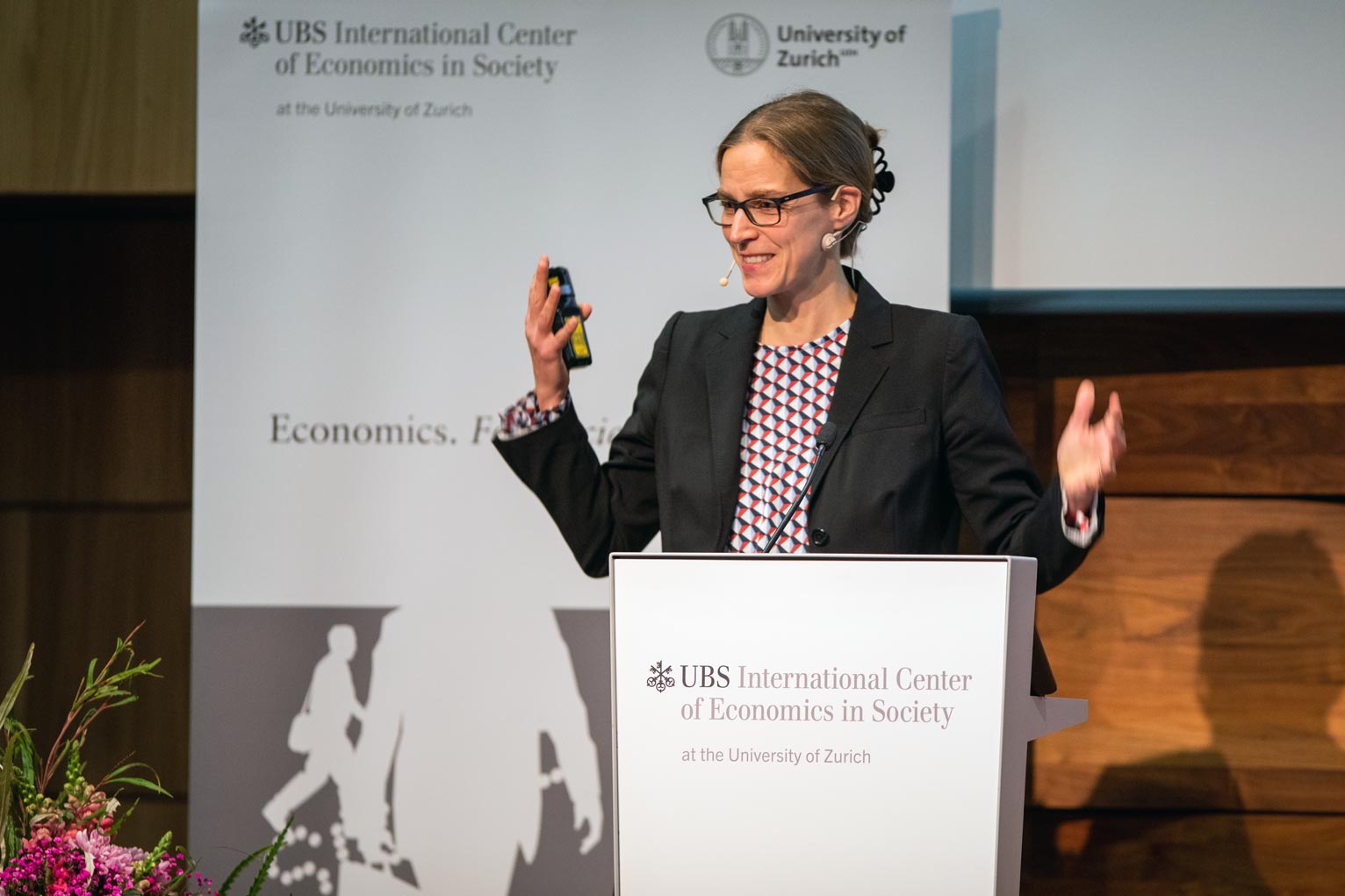
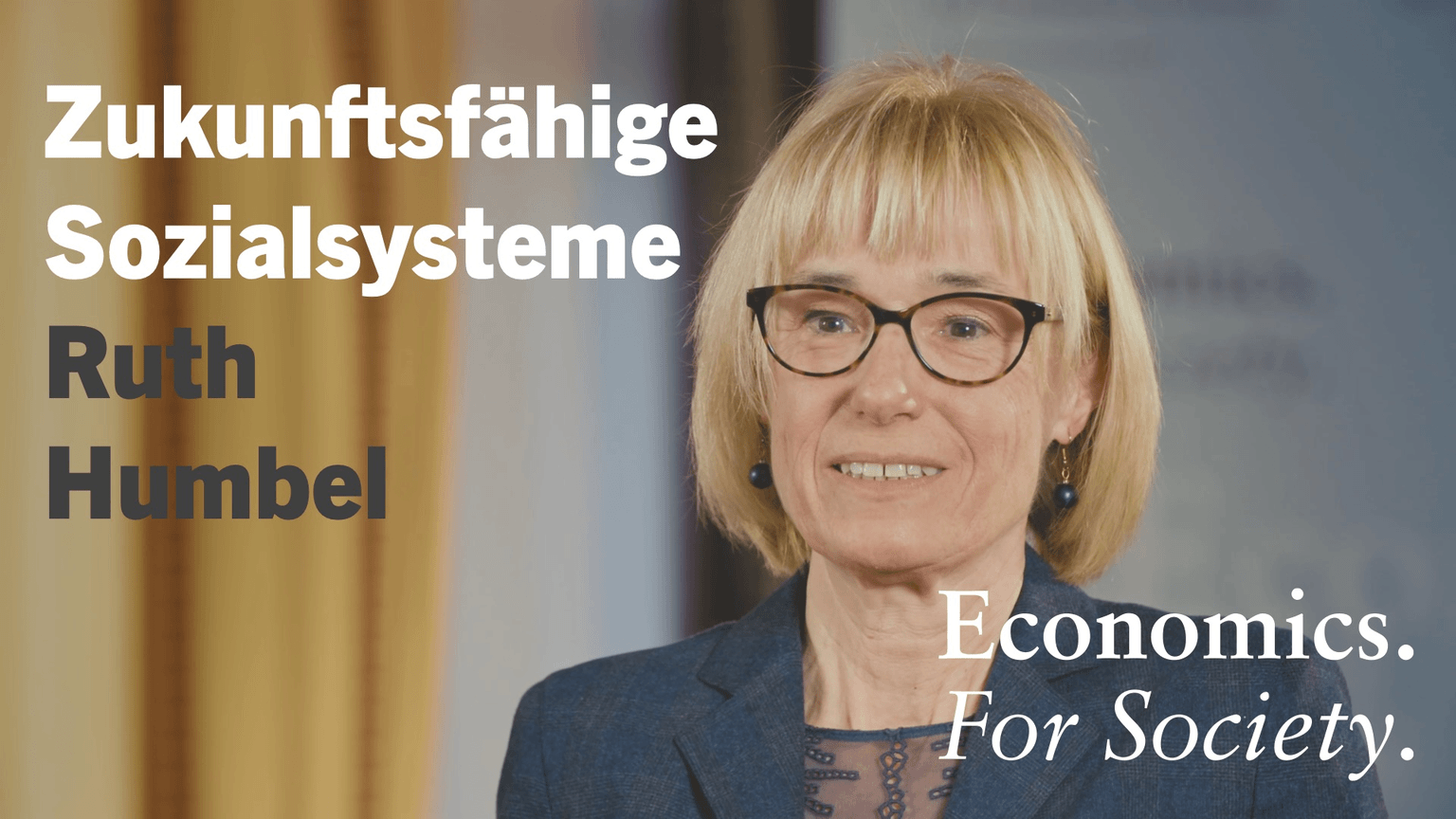


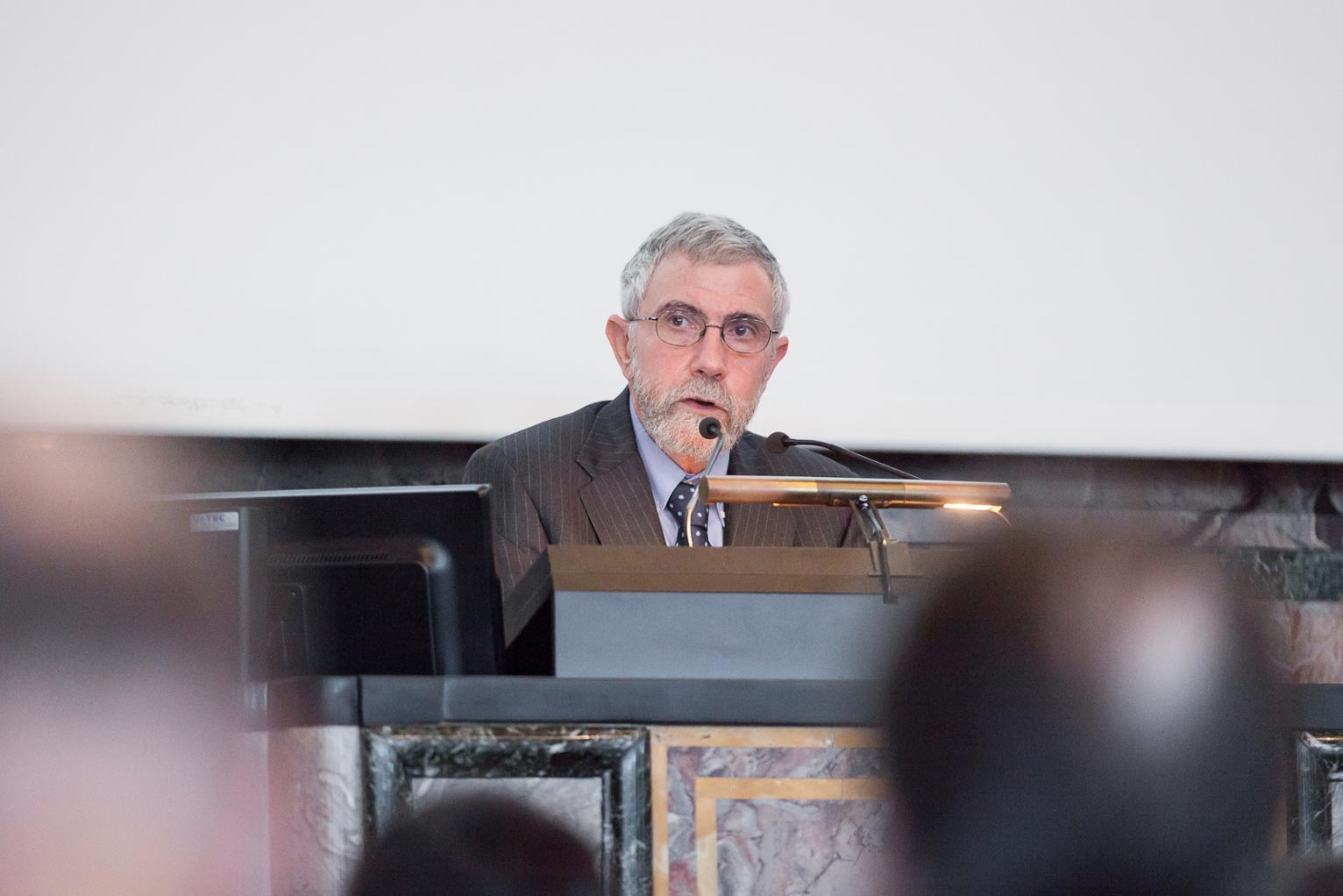
In the media
«Die Erbschaftsteuer müsste viel beliebter sein» Die Zeit Interview mit Florian Scheuer vom 9.11.2020 lesen
Vergebliche Suche nach risikofreien Anlagen Neue Zürcher Zeitung vom 20.11.2012 lesen
In der EU ginge es der Schweiz heute besser *10vor10 vom 19.11.2012 mit Jean-Claude Trichet schauen
Ungleichheit ist nicht per se gefährlich Tages Anzeiger vom 16.11.2012 Interview mit Daron Acemoglu lesen
Der Euro und das «Exorbitant Privilege» Newsnet vom 21.11.2012 lesen
So mutig wie möglich sein NZZ am Sonntag vom 25.11.2012 Interview mit Jean-Claude Trichet lesen
Noch bevor die Münzen erfunden wurden, nutzten Menschen ein System, das mit der Blockchain-Technologie vergleichbar ist NZZ vom 17.04.2018 lesen
Ermotti says 'Swissness' is key for UBS staying No.1 in wealth Bloomberg vom 12.04.2018 read
Sergio Ermotti und sein Bekenntnis zur Schweiz Finnews.ch vom 13.04.2018 lesen
«Vermutlich war 2018 das letzte Jahr des Aufschwungs» Handelszeitung vom 23.4.2019 | Das Gespräch mit Clemens Fuest über den Brexit, Chinas Aufstieg und Industriepolitik lesen
Harvard Ökonom Rogoff stärkt SNB den Rücken Handelszeitung vom 25.06.2015 lesen
Der dritte Meilenstein NZZ vom 24.06.2015 lesen
Nach Goldstandard und fixen Wechselkursen soll nun die Nullzinsgrenze fallen Finanz und Wirtschaft vom 24.06.2015 lesen
Griechenland-Verschuldung SRF Tagesschau vom 23.06.2015 schauen
Die SNB hatte im Januar keine andere Wahl NZZ am Sonntag vom 14.06.2015 lesen
Trump hört auf Spinner SRF vom 22.09.2016) lesen
Wählt mich zum Diktator Finanz und Wirtschaft vom 23.09.2016 lesen
Ich bin der Schweizerischen Nationalbank dankbar NZZ am Sonntag vom 24.09.2016 lesen